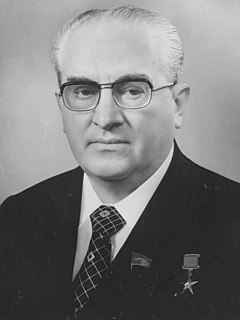A Quote by Thorstein Veblen
Instead of investing in the goods as they pass between producer and consumer, as the merchant does, the businessman now invests in the processes of industry.
Related Quotes
Consumption is the sole end and purpose of all production; and the interest of the producer ought to be attended to only so far as it may be necessary for promoting that of the consumer. The maxim is so perfectly self-evident that it would be absurd to attempt to prove it. But in the mercantile system the interest of the consumer is almost constantly sacrificed to that of the producer; and it seems to consider production, and not consumption, as the ultimate end and object of all industry and commerce.
One of the weaknesses of Indian industry is that in many areas.. like consumer goods.. it is very fragmented. Individually, the companies might not be able to survive. What is needed is a consortium of like companies in one industry, presenting a strong front to the multinationals. The Swiss watch industry did this.
We didn't see any statistically significant relationship between our buzz and our short-term sales...Is that the end of the story? I would say no. This is one study on a set of brands in a particular company within a certain segment of the consumer-packag ed-goods industry. It is by no means a generalized result that applies to all industries.
It is too narrow an understanding of production which confines it merely to the making of things. Production includes not merely the making of things, but the bringing of them to the consumer. The merchant or storekeeper is thus as truly a producer as is the manufacturer, or farmer, and his stock or capital is as much devoted to production as is theirs.




































